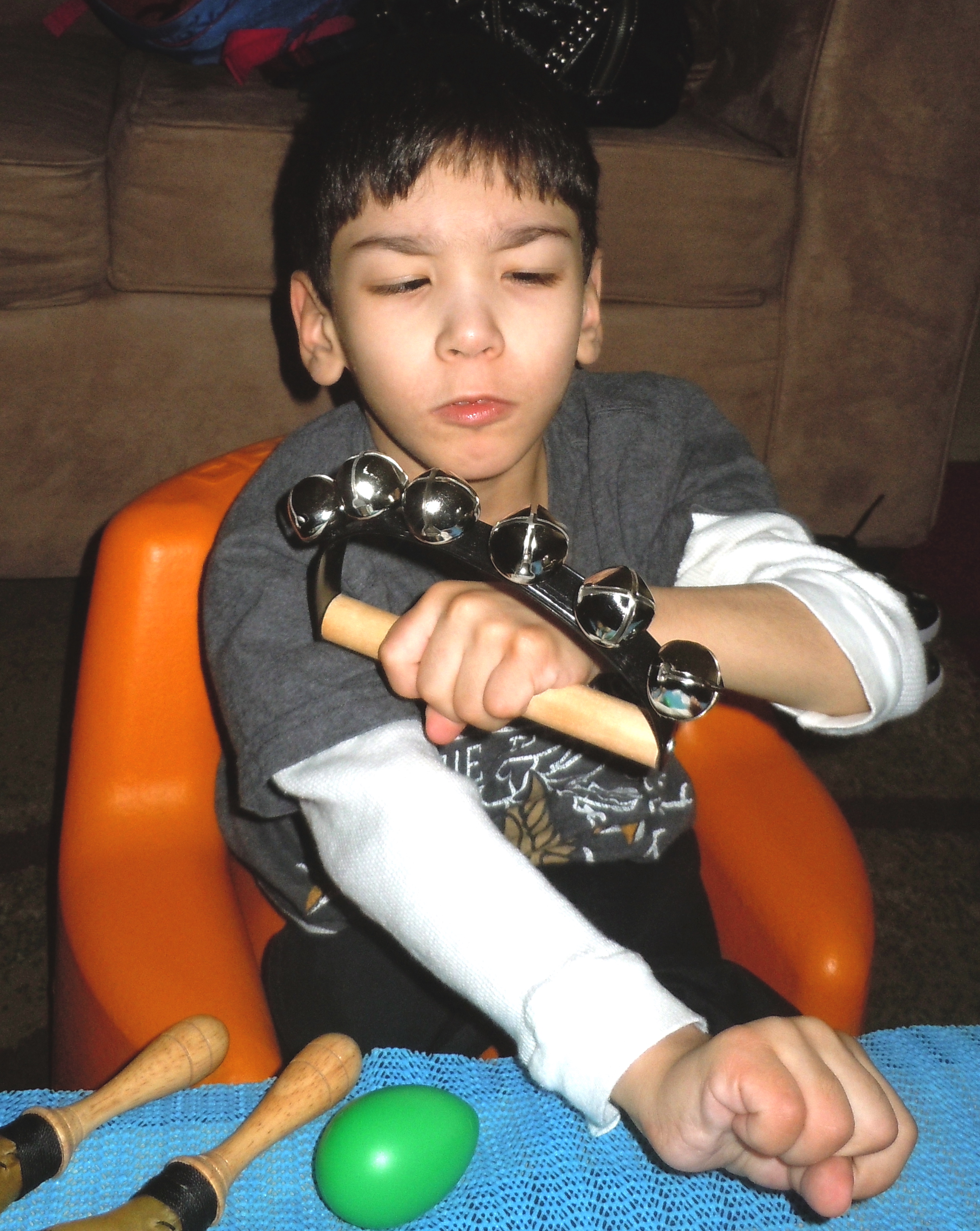HCT offers Music Therapy to children and adults affected by Cerebral Palsy, Autism Spectrum Disorder, Traumatic Brain Injury, Elder Care needs, Post-Surgical Rehabilitation needs, and medical concerns. Music Therapy can offer many benefits to clients, including but not limited to providing emotional support, creating opportunities for self-expression, managing stress, and improving socialization. Music Therapists implement a combination of structured activities designed for the client. For an overview of Music Therapy services offered by HCT and to learn how to begin receiving these services please explore the following list of key questions and answers.
What is Music Therapy?
Music Therapy encompasses the use of music and musical activity to address the various physical, emotional, cognitive, and/or social needs of a client within a therapeutic setting. Sessions are designed to improve communication and socialization, promote well-being, manage stress, alleviate chronic pain, enhance memory, provide emotional support, and create a setting for the expression of feelings.
Therapists begin by assessing the goals and capabilities of each client before designing a customized treatment plan which can include singing, making, moving to, and listening to music. Most notably, Music Therapy can provide a means of communication for those that are experiencing difficulty expressing themselves, and provide a level of emotional support for clients and their families.
What do Music Therapists do?
Music Therapists work to assess the goals and capabilities of each client before designing a treatment plan to help clients reach their desired objectives. Through the use of both vocal and instrumental techniques, therapists may work with clients to compose and improvise pieces of music as well as accompany and conduct instrument instruction, movement, and other structured activities. Music Therapy sessions are generally offered in a small group or individual setting in which therapists encourage clients to play, listen, move, and create as part of a comprehensive treatment plan designed to benefit the client and help them reach preplanned goals.
What clients do Music Therapists serve?
HCT Music Therapists serve a wide range of clients with special needs, including children and adults with Cerebral Palsy, Autism Spectrum Disorder, Traumatic Brain Injuries, Post-Surgery Rehabilitation, and the Elderly. Music therapists will design a customized aquatic treatment plan based on each client’s individual capabilities and goals.
How are Music Therapy Services different from other types of therapy?
Music Therapy services are different from other services provided by HCT in that Music Therapists use music as a means of interacting with and benefitting the client. Depending on the client’s needs, goals, and abilities, therapists design a treatment plan that engages the client through the use of music. Therapy can include composing, improvising, moving, singing, using instruments, and other structured activities.
What are the Benefits of Music Therapy?
The Physical Benefits of Music Therapy:
- Movement and Exercise
Psychological Benefits of Music Therapy:
- Improved Socialization
- Improved Communication
- Emotional Support
- Self Expression
- Enhanced Memory
What are a Music Therapist’s Education, Qualifications, and Credentials?
HCT’s Music Therapists are licensed from a qualified institution, and have a background in risk management as well as physical therapy techniques. Becoming a Music Therapist requires a Bachelor’s degree, with required coursework in music theory, human development, biology, and a practicum involving the use of various therapy techniques in a clinical setting for 1200 hours. Upon degree completion, a student must take a certification exam to become a Music Therapist-Board Certified (MT-BC), which is administered by the Certification Board for Music Therapists. Certification is required to practice. Re-certification is required within five years of becoming an MT-BC, and therapists are required to complete 100 hours of continuing Music Therapy education.
What is the process for receiving Music Therapy Services from Health Care Therapies?
In order to receive Music Therapy services from HCT, a client evaluation must first be scheduled. An HCT Therapist will meet with the client and their family to discuss the client’s overall health as well as their capabilities, goals, and challenges they experience. After the initial client evaluation, HCT Therapists work with the client as well as the client’s family and doctors to create a comprehensive treatment plan that will benefit the client to help them reach their goals. The customized treatment plan may feature various components including Massage Therapy, Recreational Therapy, Music Therapy, and Aquatic Therapy. The Music Therapy components of a client’s treatment plan are typically performed at the client’s home and consist of various structured activities which are designed to benefit the client and help them reach their pre-planned goals.



